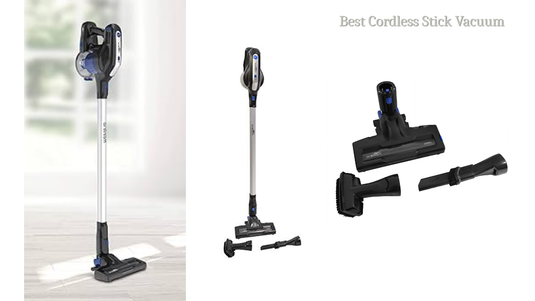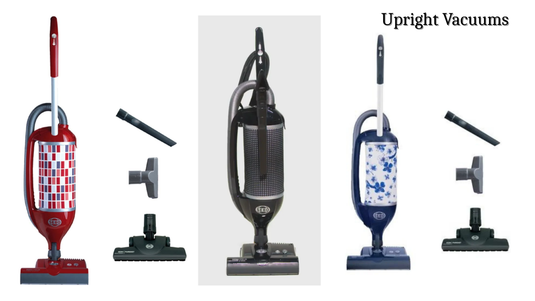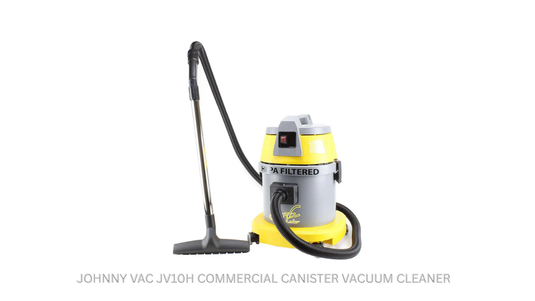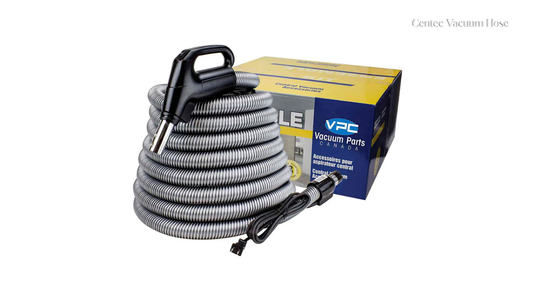How to Choose the Best Electric Pressure Washer for Your Needs
An electric pressure washer is one of the most versatile cleaning tools you can own. Whether it’s blasting away stubborn grime from your driveway, restoring the look of your deck, or giving your car a spotless shine, the right model can save you hours of scrubbing and buckets of water.
But here’s the challenge—not all electric pressure washers are created equal. If you pick one that’s too weak, you’ll be left frustrated. Too powerful, and you might damage delicate surfaces. In this comprehensive guide, we’ll break down everything you need to know to make a smart, confident choice.
1. Determine Your Cleaning Needs First
Before diving into technical specs, think about what you’ll be cleaning most often. This will help you choose the right power and features without overspending.
Light-Duty Cleaning
-
Car washing
-
Bicycles
-
Outdoor furniture
-
Window cleaning
Recommended PSI: 1,300–1,800
Medium-Duty Cleaning
-
Decks and patios
-
Wooden fences
-
Garage floors
Recommended PSI: 1,800–2,200
Heavy-Duty Home Cleaning
-
Driveways and sidewalks
-
Brick walls
-
Stubborn oil stains
Recommended PSI: 2,200–3,000
Tip: If you’ll be cleaning a variety of surfaces, choose a model with adjustable pressure or multiple nozzle options so you can switch between gentle and powerful cleaning.
2. Understand PSI and GPM — The Two Key Specs
When shopping for the best electric pressure washer, you’ll see two main numbers: PSI (Pounds per Square Inch) and GPM (Gallons per Minute).
-
PSI measures water pressure — higher PSI = more force to break down dirt.
-
GPM measures water flow — higher GPM = faster rinsing and cleaning.
A good home-use electric pressure washer often falls in the range of 1,800–2,500 PSI and 1.2–2.0 GPM. Together, these numbers determine cleaning units (CU):
Cleaning Units = PSI × GPM
Example: 2,000 PSI × 1.5 GPM = 3,000 CU (the higher, the better for heavy-duty jobs).
3. Portability, Weight, and Storage Space
Many people overlook size and portability — until they have to lug their washer around. Consider:
-
Weight: Under 30 lbs is easier for most people to carry.
-
Wheels: Big, sturdy wheels make moving across uneven terrain smoother.
-
Cord and hose length: Look for 20–35 ft power cords and 20–25 ft hoses for more reach without constant repositioning.
-
Storage design: Some units have onboard storage for cords, hoses, and nozzles to keep everything tidy.
4. Nozzle Types and Spray Patterns
Choosing the right nozzle is just as important as choosing the right PSI. Most electric pressure washers come with quick-connect nozzles:
-
0° (Red): Concentrated jet for tough stains (use cautiously).
-
15° (Yellow): Heavy-duty cleaning like concrete or brick.
-
25° (Green): General cleaning for patios, decks, and siding.
-
40° (White): Gentle cleaning for vehicles, wood, and windows.
-
Soap nozzle: Applies detergent for deep cleaning.
Some premium models include a turbo nozzle that rotates a narrow spray for more efficient cleaning.
5. Hose Quality and Flexibility
A cheap, stiff hose can make using your pressure washer frustrating. Look for:
-
Non-kinking hoses for smooth operation.
-
Quick-connect fittings for fast setup and breakdown.
-
Reinforced construction for durability under high pressure.
6. Safety Features You Shouldn’t Skip
Pressure washers are powerful tools, so safety features are essential:
-
Total Stop System (TSS): Shuts off the pump when the trigger isn’t pressed — prolongs motor life and saves energy.
-
GFCI Plug: Protects against electric shocks.
-
Trigger Lock: Prevents accidental spraying, especially useful if kids are around.
7. Detergent and Soap Systems
Some electric pressure washers come with built-in detergent tanks for applying soap directly. These are great for cleaning vehicles, siding, and heavily soiled surfaces.
Look for:
-
Removable detergent tanks for easy filling and cleaning.
-
Adjustable soap dispensers to control the concentration.
8. Maintenance and Durability
While electric models require less maintenance than gas-powered ones, you still need to care for them:
-
Flush the system after each use.
-
Keep nozzles clean and unclogged.
-
Store in a dry, frost-free location to prevent damage.
9. Warranty and Brand Reputation
Stick with reputable brands that offer at least a 1–2 year warranty. Good customer service can make a huge difference if something goes wrong.
Popular trusted brands include: Sun Joe, Greenworks, Ryobi, AR Blue Clean, and Karcher.
10. Price Range and Value
-
Budget ($100–$150): Great for light-duty work and occasional use.
-
Mid-range ($150–$300): Best value for most homeowners — better build, higher PSI, and more features.
-
Premium ($300+): Higher performance, longer lifespan, advanced features for frequent heavy-duty cleaning.
Final Verdict
The best electric pressure washer is the one that matches your cleaning tasks, fits your budget, and offers a good balance between power and ease of use.
If you regularly clean cars, decks, and patios, aim for 2,000–2,300 PSI, 1.5–1.8 GPM, and multiple nozzles. If you only need it for occasional light cleaning, a budget-friendly 1,500–1,800 PSI model will do the job.
Pro Tip: Think long-term — spending a little more upfront can save you from replacing a weak or unreliable model later.
Blog posts
-
 Top Reasons the Cyclovac Airstream Ultra-Light Earns the Best Cordless Stick Vacuum TitleRead more →
Top Reasons the Cyclovac Airstream Ultra-Light Earns the Best Cordless Stick Vacuum TitleRead more →Vacuuming has come a long way in recent years. Bulky, corded models are no longer the standard in modern households. Today, homeowners expect cleaning solutions that are lightweight, cordless, and powerful enough to handle daily messes. The rise of cordless stick vacuums has transformed how we maintain our living spaces, combining portability with performance.
Among the wide selection available in 2025, the Cyclovac Airstream Cordless Ultra-Light Stick Vacuum with Cyclone HEPA Filtration stands out as a top contender. It isn’t just another cordless vacuum—it’s a cleaning tool designed with real-life needs in mind. From families with kids and pets to allergy sufferers who prioritize air quality, this vacuum delivers efficiency and innovation in one sleek package.
-
 5 Reasons to Upgrade to the SEBO Felix Premium Upright VacuumRead more →
5 Reasons to Upgrade to the SEBO Felix Premium Upright VacuumRead more →When it comes to home cleaning, most people expect their vacuum to do one simple job: pick up dust and debris. But anyone who has owned multiple vacuums knows that the difference between an average machine and a truly exceptional one can transform the cleaning experience. Ordinary upright vacuums may lose suction, clog frequently, or fail to filter allergens properly, leaving you frustrated and your home less clean than it should be.
-
 The Best Rug Cleaner for Deep Cleaning: Johnny Vac JV10H Commercial Canister Vacuum CleanerRead more →
The Best Rug Cleaner for Deep Cleaning: Johnny Vac JV10H Commercial Canister Vacuum CleanerRead more →Rugs are more than just decorative pieces—they add warmth, comfort, and character to any space. However, they also trap dirt, dust, allergens, and debris deep within their fibers, which can shorten their lifespan and affect indoor air quality. For this reason, investing in a reliable rug cleaner is essential for both homes and businesses. Among the many options available, the Johnny Vac JV10H Commercial Canister Vacuum Cleaner stands out as a top choice for deep cleaning rugs and maintaining a cleaner, healthier environment.
-
 How the Centec Vacuum Hose Enhances the Central Vacuum Electric Hose for All Central VacuumsRead more →
How the Centec Vacuum Hose Enhances the Central Vacuum Electric Hose for All Central VacuumsRead more →When it comes to maintaining a clean and healthy home, the efficiency of your central vacuum system depends heavily on the quality of its hose. Among the most trusted names in the industry, the Centec Vacuum Hose has earned a reputation for durability, performance, and compatibility with a wide range of systems. Pairing this with the Central Vacuum Electric Hose – Pistol Grip Handle – Fits All Central Vacuums can dramatically improve your cleaning experience, making household chores faster, easier, and more effective.







